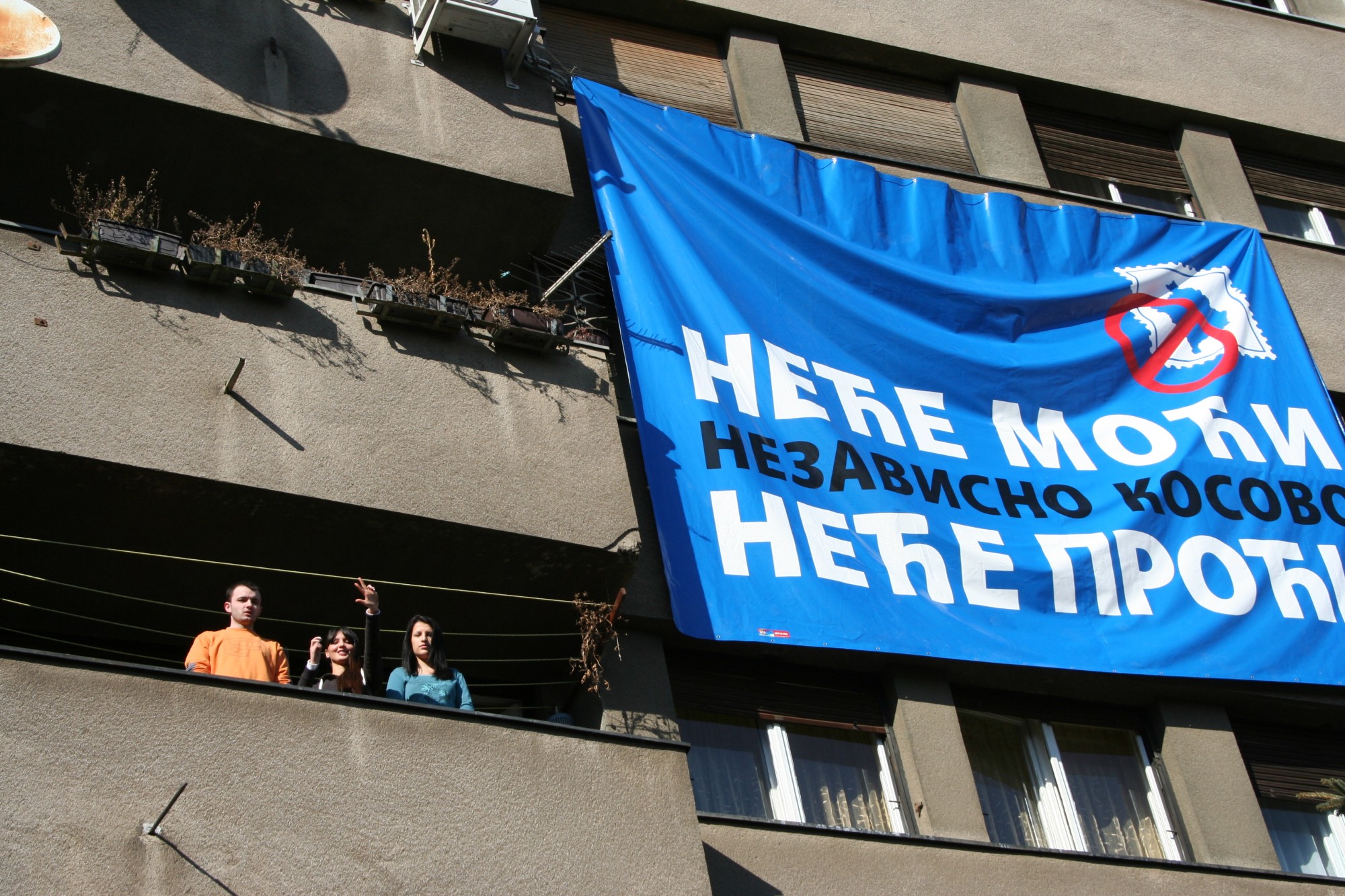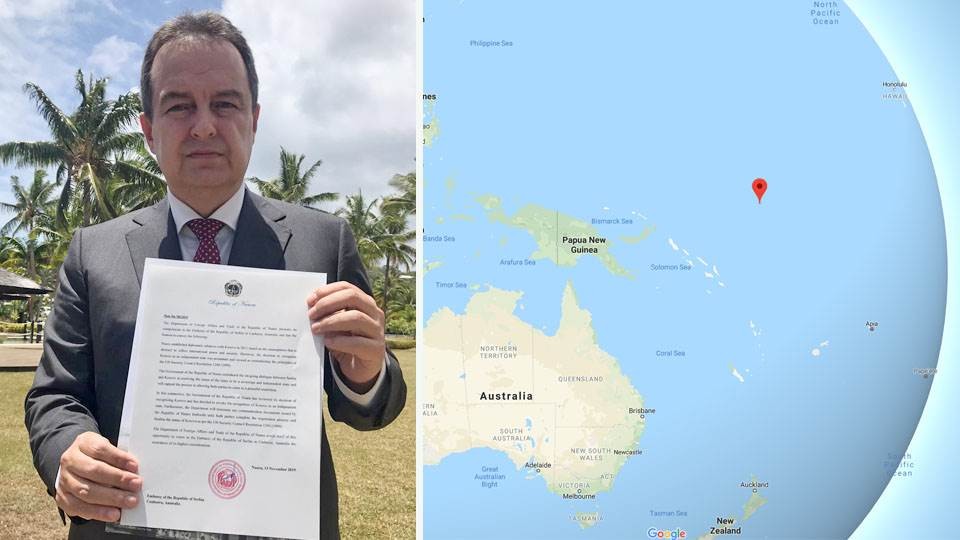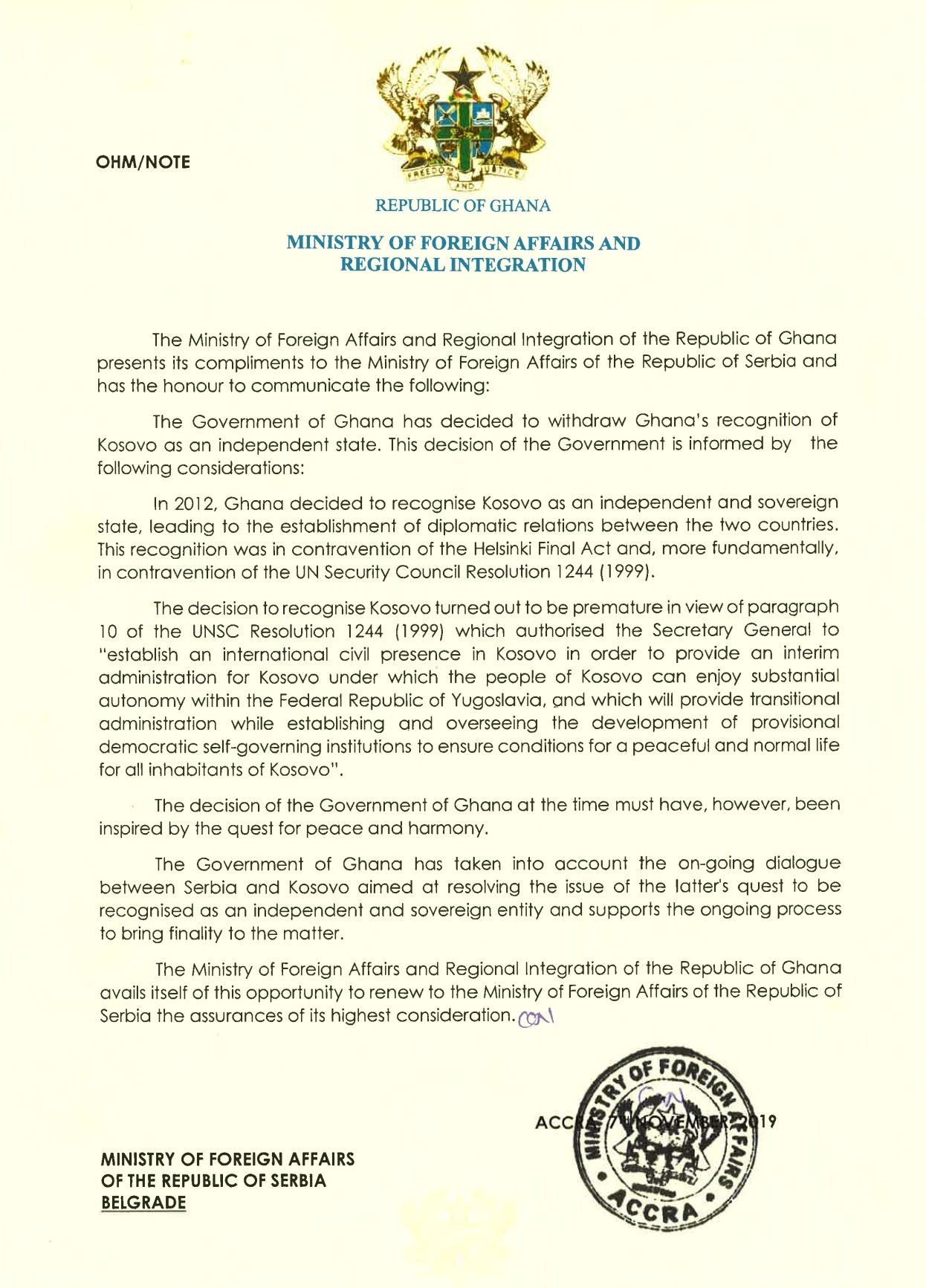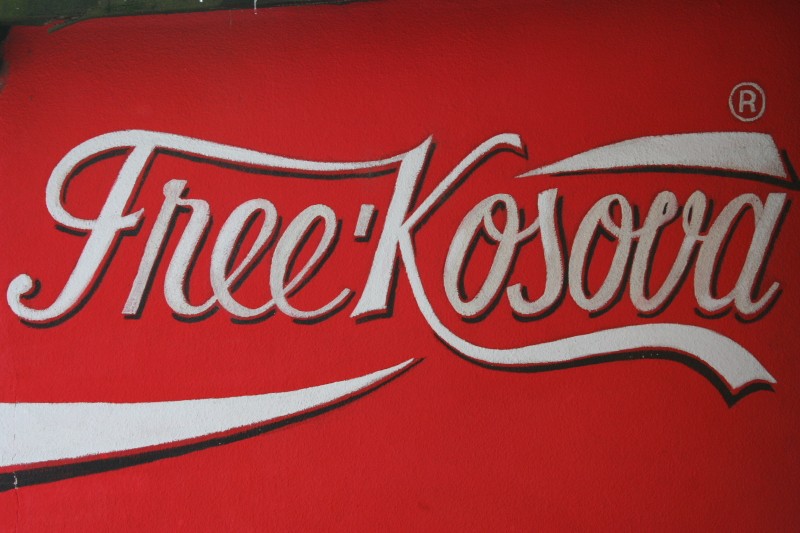Recognition Battle between Belgrade and Pristina
With its overt campaign to reduce the number of countries that recognize Kosovo as an independent state, Serbia has provoked the wrath of its neighbour. The battle intensifies.
With its overt campaign to reduce the number of countries that recognize Kosovo as an independent state, Serbia has provoked the wrath of its neighbour. The battle intensifies.

In North Mitrovica, the Serbian population demonstrated in 2008 against Kosovo's strive for independence. According to them, Kosovo is an essential part of Serbia.
Jorie HorsthuisWhen Nauru, a tiny island in Micronesia, revoked its decision to recognize the independence of Kosovo in late November, Serbia claimed that it found the 17th state that did so. Not without pride, Serbia’s Foreign Minister Ivica Dacic showed the diplomatic letter to the public, saying Nauru had withdrawn its earlier recognition, as it ‘proved to be premature’.

Serbia’s Minister of Foreign Affairs Ivica Dacic poses with the dipomatic letter of Nauru, stating it revokes its recognition of Kosovo.
http://rs.n1info.com/Serbia is intensifying its lobby campaign, aiming to bring the total number of countries that recognize Kosovo to below 97 – half the membership of the United Nations. Other countries that recently revoked recognition are Togo, Ghana, Madagaskar, Suriname, Burundi and Papua New Guinea.

Diplomatic letter of the Ministry of Foreign Affairs of Ghana, announcing its withdrawal of the recognition of Kosovo as an independent state.
Kosovo started an intense lobby campaign itself in the years towards 2008, when it proclaimed independence from Serbia. Within a couple of years, over 100 countries recognized its new status. Now, Pristina strongly condemns the counter moves of Belgrade and questions the authenticity of the official documents.
Kosovo’s foreign minister, Behgjet Pacolli, claimed that Serbia has been drafting diplomatic letters and bribing officials to sign them. ‘The Serbian @SRBDiplomacy MFA propaganda and diplomatic campaign against #Kosovo is continuing in a dirty way’, the minister stated in a tweet on 26 August 2019. ‘Kosovo will take measures to defend its integrity and sovereignty. This campaign has only one goal to escalate the relations with #Kosovo and we will not tolerate this.’

On 17 February, 2008, people took the streets in Pristina to declare Kosovo’s independence from Serbia.
Jorie HorsthuisSerbia is blocking Kosovo from becoming an UN member since 2008. The country is backed by Russia and China, who have a veto power in the Security Council. Last year, when Serbia also stopped Kosovo from joining Interpol, Pristina slapped a 100% tax on Serbian products. This caused a lot of anger in Serbia, and immediately led to reprisals.
The United States and European Union are attempting to reduce the tensions between the Balkan neighbors. But as long as both parties keep standing their ground, it does not seem too realistic that they will manage to spark a new dialogue.
Independent observers are very sceptical about the ‘numbers game’ that is currently played by Serbia and Kosovo. According to James Ker-Lindsay, visiting professor at the London School of Economics and Political Science, ‘the key question of UN membership will not shift if a few African or Asian countries change their stance on recognition.’ Both sides have key allies in the Security Council, who will not alter their positions.

Street art in South Mitrovica, just across the unofficial border with Serbia.
Jorie HorsthuisKer-Lindsay advises Belgrade and Pristina in Balkan Insight to stop fixating on the current battle for recognition, because neither Belgrade nor Kosovo will emerge victorious against each other. ‘In the grand scheme of things they will face a costly stalemate that will inevitably have harmful consequences for their overall international standing.’